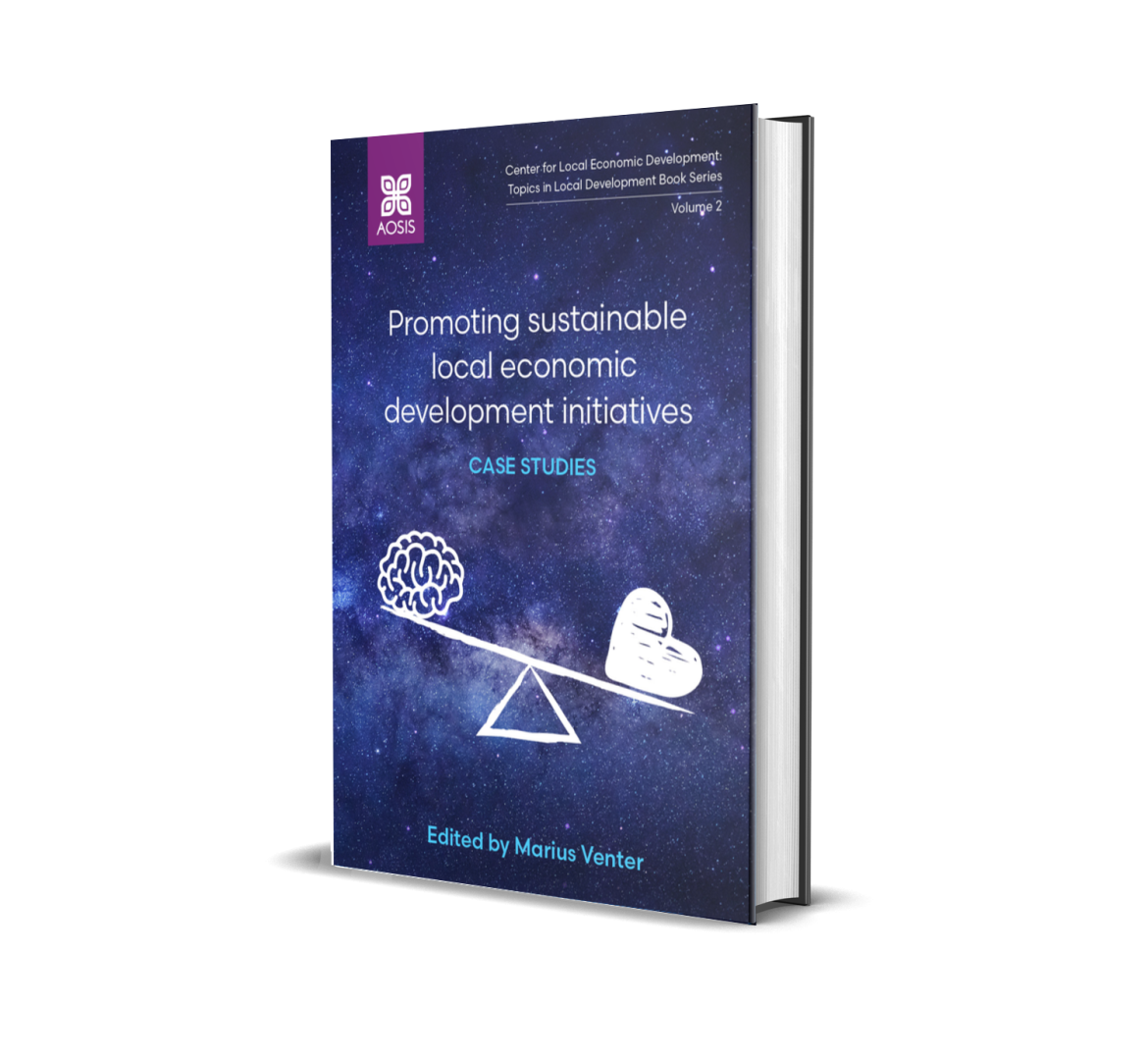Promoting sustainable local economic development initiatives: Case studies is an open access book published by AOSIS Scholarly Books.
This book endeavours to outline case studies that promote sustainable Local Economic Development (LED) initiatives. It is generally believed that local governments are the foot soldiers of LED. However, this seems to be a myth, as local governments in South Africa and elsewhere have not yet fulfilled this mandate and have been struggling for several years to implement LED initiatives. The distinctive merit of this book lies in the way it combines the South African context with the wider international development context in ways that there is a flow of information and ideas both ways. The book is an essential part of this sequence of ideas development and action at a critical time for strategic action directed at a sustainable future. It showcases case studies and responses to the impacts of globalisation as a bridge between urban/rural and institutional action and reveals avenues for local government leadership in communities, research, student engagement and wider interactions.
Copyright (c) 2022 Marius Venter (Volume editor)
This book is a diverse collection of ten perfectly selected case studies of contemporary LED stimulation, taking into account the determinants of sustainable development in the territorial dimension of South Africa. It has a very high scientific and application value. In the scientific dimension, it provides an attractive insight into the essence of mechanisms and the course of LED processes, which allows for the verification and enrichment of its theory; therefore, it will be extremely useful for the scientific community around the world. In practical terms, this book is ground-breaking for the implementation of The New South African LED Agenda, which was launched in 2017 by the Ministry of Small Business Development, in terms of the implementation of the revised National Framework for Local Economic Development. The examples of activities for LED discussed in the book can be replicated in practice in an original or modified way, avoiding the mistakes presented in it. These examples will also inspire the search for new, innovative methods of pursuing LED. In this context, this book can be seen as a practical LED work guide for researchers. It is worth emphasizing, however, that the utilitarian value of this book exceeds the boundaries of South Africa. Each of the case studies it contains can also be used abroad. This applies particularly to developing countries, but they may also turn out to be surprisingly useful in countries with higher levels of socio-economic development. Therefore, this book is recommended as an extremely interesting and theoretically and practically valuable book on LED.
Prof. Andrzej Sztando, Department of Spatial Economy and Self-Governed Administration, Faculty of Economic Sciences, Wroclaw University of Economics and Business, Wroclaw, Poland

